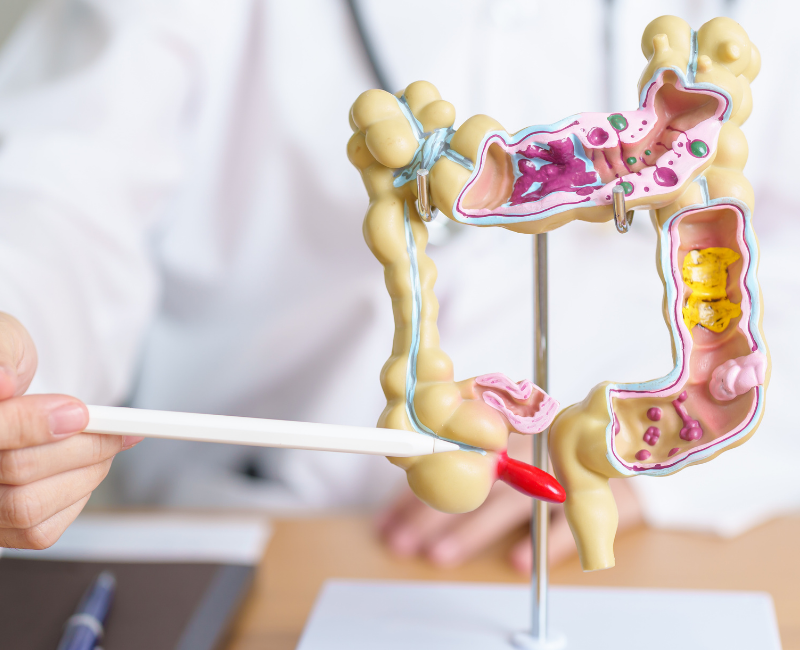A Guide to Screening and Early Detection
Colorectal cancer is one of the most preventable types of cancer when caught early, yet it’s a condition many people don’t think about until symptoms arise. Screening is essential because colorectal cancer often develops with no symptoms in its early stages. So, how exactly is colorectal cancer diagnosed? This guide will walk you through the screening and diagnostic process, helping you understand the importance of early detection and regular checkups.
Why Early Detection Is Key
Colorectal cancer begins in the colon or rectum, often starting as benign polyps. These polyps can grow slowly over several years and may eventually turn into cancer if not detected and removed early. The best way to prevent colorectal cancer is through regular screening, which can catch these precancerous polyps before they develop into something more serious.
Early detection not only helps prevent cancer but also leads to more successful treatment outcomes. In fact, when caught early, the five-year survival rate for colorectal cancer is around 90%.
Who Should Get Screened for Colorectal Cancer?
Current guidelines recommend that most adults start regular screening for colorectal cancer at age 45. However, if you have a family history of the disease or other risk factors, such as inflammatory bowel disease (IBD), your doctor may recommend starting screening earlier.
Here are the most common risk factors that may require earlier screening:
- Family history of colorectal cancer or polyps
- Personal history of IBD, Crohn’s disease, or ulcerative colitis
- Genetic predispositions like Lynch syndrome
- Lifestyle factors such as smoking, poor diet, and physical inactivity
How Colorectal Cancer Is Diagnosed
Colorectal cancer is diagnosed through a combination of screening tests, diagnostic procedures, and follow-up exams. Here’s an overview of the key steps in the screening and diagnosis process:
1. Colonoscopy: The Gold Standard
A colonoscopy is the most comprehensive and commonly recommended screening tool for colorectal cancer. During this procedure, a thin, flexible tube with a camera is inserted into the rectum, allowing the doctor to examine the entire colon for polyps or abnormal tissue. If polyps are found, they can often be removed during the procedure, reducing your risk of developing cancer.
Colonoscopy is typically recommended every 10 years for average-risk adults starting at age 45.
2. Fecal Immunochemical Test (FIT)
For those seeking a non-invasive screening option, the fecal immunochemical test (FIT) is a simple at-home test that detects hidden blood in the stool, which can be a sign of cancer or polyps. While this test doesn’t directly detect cancer, it’s a good screening tool that can indicate whether further diagnostic tests, such as a colonoscopy, are needed.
FIT tests are usually recommended every year.
3. CT Colonography (Virtual Colonoscopy)
CT colonography is a non-invasive imaging test that provides a detailed look at the colon using CT scans. This test is often recommended for those who cannot undergo a standard colonoscopy due to health concerns or personal preference. If polyps or suspicious areas are found, a follow-up colonoscopy may be required to remove or biopsy them.
This test is typically done every 5 years.
4. Flexible Sigmoidoscopy
A flexible sigmoidoscopy examines the lower part of the colon and rectum using a flexible tube with a light and camera. While it’s less comprehensive than a full colonoscopy, it can still detect polyps and cancer in the lower colon. If abnormalities are found, a colonoscopy may be needed for a more thorough examination.
It’s generally recommended every 5 years.
What Happens If Cancer Is Found?
If colorectal cancer is detected during a colonoscopy or other diagnostic test, your doctor will likely perform additional tests to determine the stage of the cancer and how far it has spread. These tests may include:
- Imaging Tests: Such as CT scans or MRIs to check for cancer spread.
- Blood Tests: To look for markers that indicate cancer or assess overall health.
- Biopsy: If a suspicious mass or polyp is found, a tissue sample will be taken for analysis.
Treatment will depend on the stage of the cancer and may involve surgery, radiation therapy, chemotherapy, or a combination of these approaches. The key is to act quickly and develop a treatment plan that gives you the best possible outcome.
The Importance of Regular Screening
Many people feel apprehensive about undergoing colorectal cancer screening, especially when there are no symptoms present. However, it’s crucial to understand that colorectal cancer often shows no signs until it has progressed. Regular screening is your best defense in catching and treating cancer early.
While the process may seem daunting, it’s a small investment in your long-term health. Screening options are more convenient than ever, and your doctor can help guide you to the method that best fits your needs.
Take Action: Schedule Your Colorectal Cancer Screening Today
Early detection of colorectal cancer saves lives. At United Gastroenterology Associates, we provide expert screening and diagnostic services in Cypress and Katy. Whether you’re due for a routine screening or have concerns about your digestive health, our team is here to help.
Contact us today to schedule an appointment and take the first step toward protecting your health with a comprehensive colorectal cancer screening.
Disclaimer:
The information provided in this blog is for general informational purposes only and should not be considered as medical advice. Always consult with a qualified healthcare provider for personalized medical advice, diagnosis, and treatment. If you have any concerns about your health or specific medical conditions, please seek professional consultation with your doctor or specialist.

